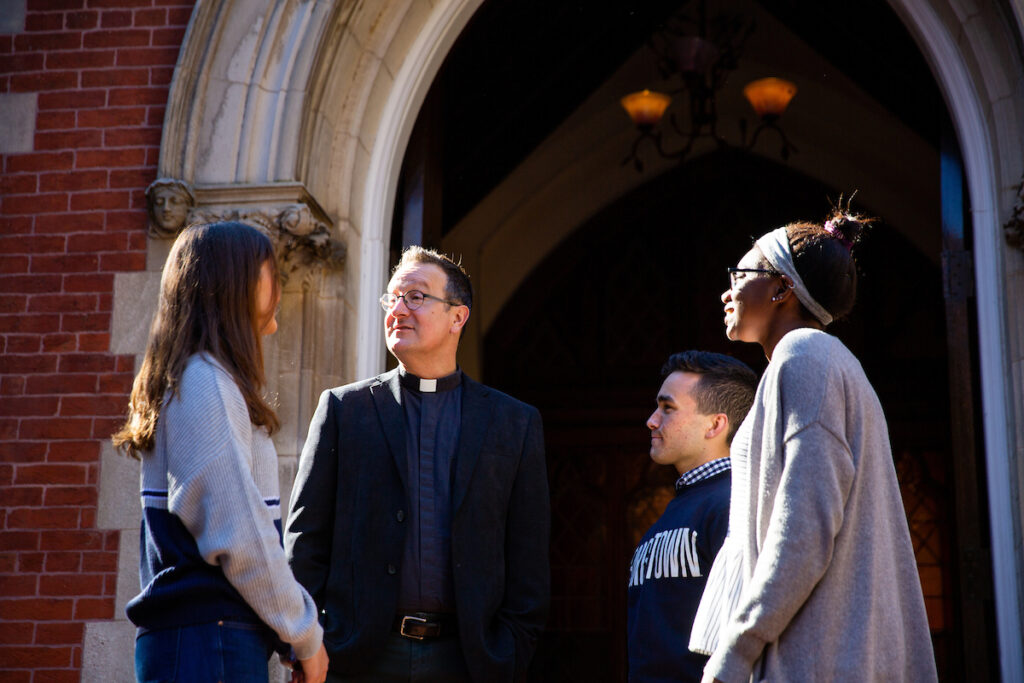Core Requirements
The liberal arts curriculum at the Georgetown University College of Arts & Sciences cultivates the intellectual skills of perception, analysis, interpretation, and expression, which sustain a life of curiosity, creativity, and responsiveness to the needs of both individuals and communities.

Father Bosco talking with students in front of Dahlgren Chapel.
FYI: The core is integrated with most major tracks in the College, as the introductory courses for almost every major will fulfill one of the core requirements. Some students also enter the College with advanced credit that may fulfill part of the core requirement.
The Georgetown University College of Arts & Sciences core requirements include:
Students typically fulfill core requirements during the first and second years. To encourage exploration and diversity, students may not take two courses in the same discipline in the same semester during the first two years.
- Additionally, students can search for courses that fulfill specific core requirements by visiting the Schedule of Classes.
- Students should consult their MyDegree audit for a list of their core requirements. The audit monitors progress toward completion of core requirements (as well as requirements for major and minor programs), and it also provides detailed information about which courses fulfill specific requirements. This is especially useful during preregistration, when students are choosing their schedules for the next semester.
- Please note that the Undergraduate Bulletin for the academic year in which the student matriculated is the ultimate authority on all degree requirements.